********** XKCD **********
return to top
Terror Bird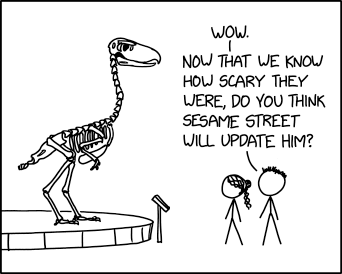
Match ID: 0 Score: 1000.00 source: xkcd.com
qualifiers: 1000.00 xkcd
SawStart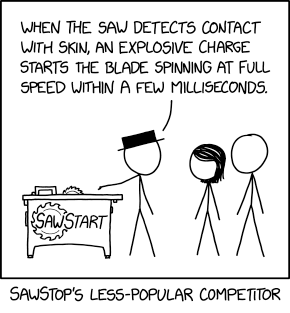
Match ID: 1 Score: 1000.00 source: xkcd.com
qualifiers: 1000.00 xkcd
Rock Identification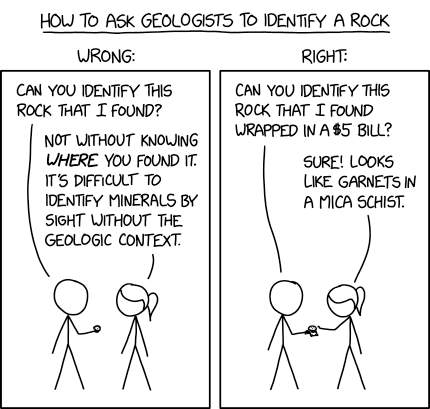
Match ID: 2 Score: 1000.00 source: xkcd.com
qualifiers: 1000.00 xkcd
Orogeny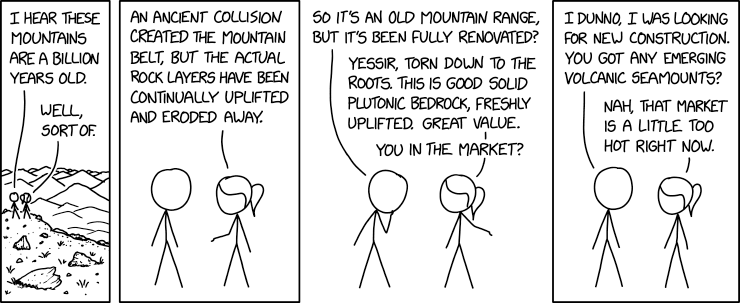
Match ID: 3 Score: 1000.00 source: xkcd.com
qualifiers: 1000.00 xkcd
Filter efficiency 99.578 (4 matches/947 results)
********** FOOD **********
return to top
Quick pickled cabbage, apple chutney and banana ketchup: recipes from Cornersmith’s Alex Elliott-Howery
Tue, 01 Apr 2025 14:00:03 GMT
A champion of transforming food waste, the cookbook author shares ingenious ways to use leftover fruit and veg to create flavourful condiments
(Pictured above)
Continue reading...Could I discover an order that would mark me out as intriguing, charming and strangely sophisticated? I spent a week trying everything from chocolate milk with rum to apple cider vinegar with prosecco to find out
In the little we know of Materialists, the forthcoming film from Past Lives director Celine Song, Dakota Johnson plays Lucy, a successful matchmaker who is herself perennially single and jaded about love. When an as-yet-unnamed suitor (Pedro Pascal) approaches her at a wedding and asks to buy her a drink, Lucy’s response is not so much a request as a challenge.
“Sure,” sighs Johnson, with that hypnotically flat delivery that saw her named worst actress at this year’s Razzies. “Coke and beer.”
Continue reading...Doctors helping with aftermath of disaster and UN special rapporteur say aid is disappearing or being blocked in some areas
Myanmar’s military is facing criticism over continued airstrikes and claims it is blocking aid to earthquake survivors, as international agencies urged “unfettered access” to humanitarian aid in the conflict-riven nation.
The 7.7-magnitude earthquake that hit central Myanmar on Friday has caused widespread destruction, killing more than 2,700 people and leaving affected areas in dire need of basic necessities such as food and water.
Continue reading...Exclusive: Interviews with influencers who usually post about food or real estate published on platform, which officially discourages political content
Chinese language influencers who mostly post lifestyle content are interviewing election candidates on the social media app Rednote, allowing politicians to bypass an apparent “shadow ban” on campaigning by the app and reach a disengaged but vital audience.
The interviews with influencers who usually post about food, real estate and shopping have been published on a platform that is not actively monitored by the Australian Electoral Commission due to Rednote’s scale and the commission’s resources.
Continue reading...This versatile spice has long outgrown its Spanish and Hungarian roots to bring richness, warmth, colour and flavour to a host of dishes
Sweet, smoked, hot … What’s the difference between the various paprikas? And are there any substitutes?
“Paprika brings warmth, it brings colour and it brings another layer of flavour,” says Monika Linton, founder of Brindisa. “Even just a sprinkling over goat’s cheese on toast, hummus or any kind of dip, along with a bit of olive oil, will bring it to life.” Crucial to both Spanish and Hungarian cuisines, paprika is made by drying peppers (generally speaking, Hungarian varieties are air-dried whereas the Spanish stuff is smoke-dried) and grinding them to a fine powder. The taste, meanwhile, depends on the variety of pepper used, although, as Linton points out, not all tins of paprika specify that.
“Paprika brings a certain richness,” says Jeremy Salamon, author of Second Generation and chef/owner of Hungarian restaurant Agi’s Counter in New York. “It has this unique, vegetal, unripe fruit-like quality, and lends itself in different ways to different dishes.” While he generally has sweet (“to use as a flavour base to build on with other spices”) and smoked (“to whip into butters”) to hand, hot paprika always comes out tops: “I like the kick it adds, so I’ll use it in chicken paprikash or in a pimento cheese dip.”
Got a culinary dilemma? Email feast@theguardian.com
Continue reading...Founded in 1983, the restaurant known for waitresses in skimpy outfits has run into financial difficulties lately
Hooters, the US-based restaurant chain known for chicken wings and skimpy waitstaff outfits, has filed for bankruptcy protection.
HOA Restaurant Group filed the motion for chapter 11 protection Monday in the north Texas bankruptcy court in Dallas.
Continue reading...The contrast of hot, sticky chilli with the sweet, ripe mango and tomatoes is extraordinary
Thinly slice 2 large tomatoes – I use beefsteak – and put them in a mixing bowl. Scrub, peel and very thinly slice a couple of small beetroot (a golden or candy-stripe variety is a colourful addition, but any sweet beet will do). Add to the bowl with the tomato.
Peel 1 medium-sized, ripe mango. Cut thin slices of flesh from each side of the stone and add them to the mixing bowl. Squeeze the fruit in your fist into the bowl to extract as much juice as possible, then discard the stone.
I like to eat this as soon as it is dressed, to get the mixture of hot, cold, sweet and sour.
In hot weather, I have been known to swap the beetroot for cucumber, peeled and thickly sliced and, on occasions, have tossed in a few cooked prawns and a big handful of coriander.
Continue reading...The death of a crew member on a Chinese-owned trawler in the Indian Ocean illustrates the lack of accountability in the seafood industry, say advocates
Ricky* was one of the first to see his crewmate’s dead body. It was 2023 and he was six months into a stint at sea, working on a longline tuna boat in the Indian Ocean for $480 a month. The crew were mostly Indonesian, like Ricky, or Chinese, like the captain and owners of the boat.
In the days leading up to Ricky’s crewmate’s death, the 29-year-old Indonesian, referred to as YK, had been increasingly depressed onboard, repeatedly asking to be sent home. The captain had refused, says Ricky, who says he saw YK attack the captain.
Continue reading...While other diet fads come and go, the ultra low carbohydrate Keto diet seems to endure. But as scientists begin to understand how the diet works, more is also being discovered about its risks. To find out more, Madeleine Finlay speaks to Javier Gonzalez, professor in the department of health at the University of Bath, with a special interest in personal nutrition. He explains how the diet works, what it could be doing to our bodies and what could really be behind the weight loss people experience while on it
Support the Guardian: theguardian.com/sciencepod
Continue reading...This week: your March favourites; gifts for new mums; and how to make your smartphone last longer
Never has the term “fool’s spring” been more fitting. When the sun came out early in the month, many of us began to prepare for the summer that felt just around the corner. Hundreds of you, like me, bought the most genius overnight bag for the weekends away that were surely about to happen, and the perfect nail colour for the new season.
But let’s be real: it’s not summer yet. A fact evidenced by just how many of you were also buying practical raincoats, stay-in-all-day satin pyjamas and – less glamorously – microwave rice cookers. Here are the Filter recommendations you loved the most this month.
Continue reading...Tell us about your favourite coastal place to eat and drink – the best tip wins £200 towards a Coolstays break
Eating fish and chips by the beach, slurping ice-cream close to the waves, sipping cocktails as the sun sets over the sea … a foodie treat always adds to a trip to the seaside. Whether it’s a cool bar right on the beach, a favourite coastal chippie or a great cafe, we’d love to hear about your tasty beside-the-sea discoveries in the UK. Tell us where it is and why you love it for the chance to win a £200 holiday voucher.
If you have a relevant photo, do send it in – but it’s your words that will be judged for the competition.
Continue reading...Whose brand tastes like a tropical ambrosia, and whose tastes like soapy gunk? Restaurateur Ravinder Bhogal dives in …
• The best rice cookers for gloriously fluffy grains at home
Coconut milk is always found front and centre in my pantry because it is a cornerstone of so much of my cooking. I buy it in bulk and rely on it to bring a voluptuous, fragrant, dairy-free creaminess to so many of my favourite dishes, from curries and dals to soups and rice dishes. It’s also indispensable for puddings for vegan friends, and for my sweet-toothed, lactose-intolerant husband. It mellows out spices and pulls a dish together, adding a silkiness to sauces and a sweet, nutty richness to cakes, batters and vegan custards.
I appreciate the convenience of the canned stuff because making coconut milk from scratch, as my mother used to do when I was growing up in Kenya, is laborious: a mature brown coconut has to be broken, its flesh grated, then soaked in hot water, before being strained and squeezed several times through a cheesecloth.
Continue reading...How reporters with the Gaza Project investigate the killing and targeting of Palestinian journalists.
The post Journalists Under Fire in Gaza, Israel’s Deadly War on Reporters appeared first on The Intercept.
A weekly email from Yotam Ottolenghi, Meera Sodha, Felicity Cloake and Rachel Roddy, featuring the latest recipes and seasonal eating ideas
Each week we’ll send you an exclusive newsletter from our star food writers. We’ll also send you the latest recipes from Yotam Ottolenghi, Nigel Slater, Meera Sodha and all our star cooks, stand-out food features and seasonal eating inspiration, plus restaurant reviews from Grace Dent and Jay Rayner.
Sign up below to start receiving the best of our culinary journalism in one mouth-watering weekly email.
Continue reading...Plastics are everywhere, but their smallest fragments – nanoplastics – are making their way into the deepest parts of our bodies, including our brains and breast milk.
Scientists have now captured the first visual evidence of these particles inside human cells, raising urgent questions about their impact on our health. From the food we eat to the air we breathe, how are nanoplastics infiltrating our systems?
Neelam Tailor looks into the invisible invasion happening inside us all
Continue reading...Style, with substance: what’s really trending this week, a roundup of the best fashion journalism and your wardrobe dilemmas solved, direct to your inbox every Thursday
Style, with substance: what’s really trending this week, a roundup of the best fashion journalism and your wardrobe dilemmas solved, delivered straight to your inbox every Thursday
Explore all our newsletters: whether you love film, football, fashion or food, we’ve got something for you
Continue reading...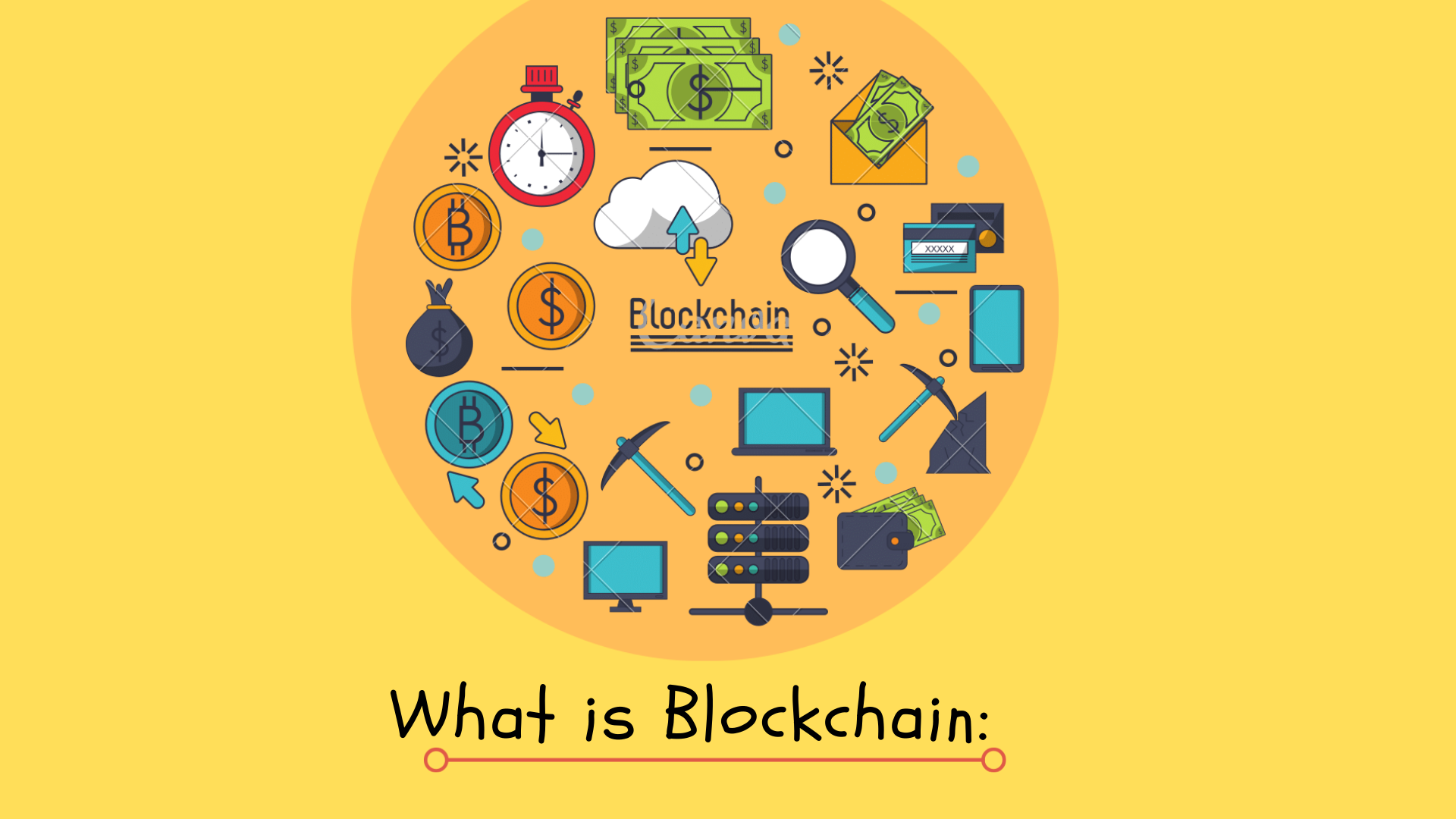 |
Imagine a world in which you can do transactions and many other things without having to give your personal information. A world in which you don’t need to rely on banks or governments anymore. Sounds amazing, right? That’s exactly what blockchain technology allows us to do.
It’s like your computer’s hard drive. blockchain is a technology that lets you store data in digital blocks, which are connected together like links in a chain.
Blockchain technology was originally invented in 1991 by two mathematicians, Stuart Haber and W. Scot Stornetta. They first proposed the system to ensure that timestamps could not be tampered with.
A few years later, in 1998, software developer Nick Szabo proposed using a similar kind of technology to secure a digital payments system he called “Bit Gold.” However, this innovation was not adopted until Satoshi Nakamoto claimed to have invented the first Blockchain and Bitcoin.
A blockchain is a distributed database shared between the nodes of a computer network. It saves information in digital format. Many people first heard of blockchain technology when they started to look up information about bitcoin.
Blockchain is used in cryptocurrency systems to ensure secure, decentralized records of transactions.
Blockchain allowed people to guarantee the fidelity and security of a record of data without the need for a third party to ensure accuracy.
To understand how a blockchain works, Consider these basic steps:
Let’s get to know more about the blockchain.
Blockchain records digital information and distributes it across the network without changing it. The information is distributed among many users and stored in an immutable, permanent ledger that can't be changed or destroyed. That's why blockchain is also called "Distributed Ledger Technology" or DLT.
Here’s how it works:
And that’s the beauty of it! The process may seem complicated, but it’s done in minutes with modern technology. And because technology is advancing rapidly, I expect things to move even more quickly than ever.
Even though blockchain is integral to cryptocurrency, it has other applications. For example, blockchain can be used for storing reliable data about transactions. Many people confuse blockchain with cryptocurrencies like bitcoin and ethereum.
Blockchain already being adopted by some big-name companies, such as Walmart, AIG, Siemens, Pfizer, and Unilever. For example, IBM's Food Trust uses blockchain to track food's journey before reaching its final destination.
Although some of you may consider this practice excessive, food suppliers and manufacturers adhere to the policy of tracing their products because bacteria such as E. coli and Salmonella have been found in packaged foods. In addition, there have been isolated cases where dangerous allergens such as peanuts have accidentally been introduced into certain products.
Tracing and identifying the sources of an outbreak is a challenging task that can take months or years. Thanks to the Blockchain, however, companies now know exactly where their food has been—so they can trace its location and prevent future outbreaks.
Blockchain technology allows systems to react much faster in the event of a hazard. It also has many other uses in the modern world.
Blockchain technology is safe, even if it’s public. People can access the technology using an internet connection.
Have you ever been in a situation where you had all your data stored at one place and that one secure place got compromised? Wouldn't it be great if there was a way to prevent your data from leaking out even when the security of your storage systems is compromised?
Blockchain technology provides a way of avoiding this situation by using multiple computers at different locations to store information about transactions. If one computer experiences problems with a transaction, it will not affect the other nodes.
Instead, other nodes will use the correct information to cross-reference your incorrect node. This is called “Decentralization,” meaning all the information is stored in multiple places.
Blockchain guarantees your data's authenticity—not just its accuracy, but also its irreversibility. It can also be used to store data that are difficult to register, like legal contracts, state identifications, or a company's product inventory.
Blockchain has many advantages and disadvantages.
I’ll answer the most frequently asked questions about blockchain in this section.
Blockchain is not a cryptocurrency but a technology that makes cryptocurrencies possible. It's a digital ledger that records every transaction seamlessly.
Yes, blockchain can be theoretically hacked, but it is a complicated task to be achieved. A network of users constantly reviews it, which makes hacking the blockchain difficult.
Coinbase Global is currently the biggest blockchain company in the world. The company runs a commendable infrastructure, services, and technology for the digital currency economy.
Blockchain is a decentralized technology. It’s a chain of distributed ledgers connected with nodes. Each node can be any electronic device. Thus, one owns blockhain.
Bitcoin is a cryptocurrency, which is powered by Blockchain technology while Blockchain is a distributed ledger of cryptocurrency
Generally a database is a collection of data which can be stored and organized using a database management system. The people who have access to the database can view or edit the information stored there. The client-server network architecture is used to implement databases. whereas a blockchain is a growing list of records, called blocks, stored in a distributed system. Each block contains a cryptographic hash of the previous block, timestamp and transaction information. Modification of data is not allowed due to the design of the blockchain. The technology allows decentralized control and eliminates risks of data modification by other parties.
Blockchain has a wide spectrum of applications and, over the next 5-10 years, we will likely see it being integrated into all sorts of industries. From finance to healthcare, blockchain could revolutionize the way we store and share data. Although there is some hesitation to adopt blockchain systems right now, that won't be the case in 2022-2023 (and even less so in 2026). Once people become more comfortable with the technology and understand how it can work for them, owners, CEOs and entrepreneurs alike will be quick to leverage blockchain technology for their own gain. Hope you like this article if you have any question let me know in the comments section
FOLLOW US ON TWITTER
RSS Rabbit links users to publicly available RSS entries.
Vet every link before clicking! The creators accept no responsibility for the contents of these entries.
Relevant
Fresh
Convenient
Agile
We're not prepared to take user feedback yet. Check back soon!